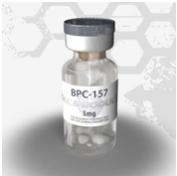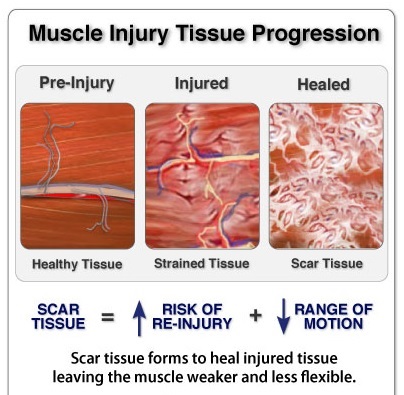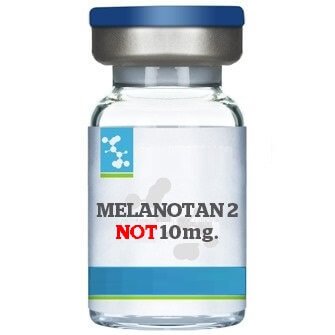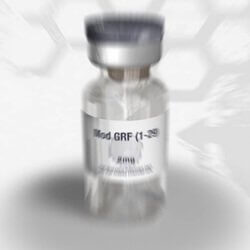The Actual Rules for the Use of Research Peptides (USA)
The Actual Rules for the Use of Research Peptides (USA)
by , 25th May 2016 at 07:59 AM (21874 Views)
Yip, I contacted the FDA. It took ages to get the exact information I need, and I’m still waiting to hear back from the Medicines and Healthcare products Regulatory Agency in the UK for the full scope on the laws as they apply over there… But for those of you who have been doing endless searches to find the laws that regulate research peptides and their use in the USA, you have struck gold. You don’t have to read through all the threads on all the public bodybuilding forums any longer. I know how unspecific the hearsay is. I went through them all too. So, if you’re a newbie looking to read the laws surrounding research peptides look no further!
The code for federal Investigational New Drug Regulation is quite an extensive document. You're welcome to go through it yourself to see all the nitty gritty details, but I’m going to sum up the most important bits for those of you wondering if it is legal to use research peptides in the US. But more importantly, I’d like to share what the exact laws state. You know, so that you can get the answers you’ve been trying to hunt down. I’ll also be adding a bit about the import and export laws.
Ok, so research peptides fall into the investigational new drug class. There is a whole list of provisions to which a drug must adhere in order to be a lawful IND, which basically boils down to the FDA having reviewed the drug. So let’s assume all research peptides have undergone this process and their distribution is legal. I say this because research peptides are, generally, legally distributed. As a side note, it seems that there are quite a couple of possible loopholes in order to legally distribute research peptides without the FDA review if you have the right connections. I would however have a lawyer friend look it over, just to be safe. See section 312.2 for details on these exemptions.
Under the above assumption the next interesting part for research peptide users pop up in sections 312.40, 50 and 56 respectively. If you clicked on the link don’t stress too much about the IND they talk about. It is just referring to the things the suppliers (or “sponsors”) need to take care of. I would advise having a quick read through the requirements of an IND if you’re really interested. But seeing as you will be an “investigator” in this whole process, because you’re the one investigating the effects of research peptides, on yourself, you shouldn’t have to worry about that.
This is where the line starts getting a bit hazy. Section 312.50 states that the sponsors “are responsible for selecting qualified investigators, providing them with the information they need to conduct an investigation properly, ensuring proper monitoring of the investigation(s), ensuring that the investigation(s) is conducted in accordance with the general investigational plan and protocols contained in the IND, maintaining an effective IND with respect to the investigations, and ensuring that FDA and all participating investigators are promptly informed of significant new adverse effects or risks with respect to the drug.” Which means that if the sponsor was able to set up an IND that includes “qualified bodybuilders” to act as subjective investigators by testing the peptides on themselves and sending back reports on their progress, then yes, research peptides are legal. This is probably never the case though, seeing as nobody ever mentions signing a form or reporting to a sponsor as section 312.56 requires.
I’ve read on numerous sites that research peptides are also distributed for research on animals or in vitro, which makes the legal process much easier. I suspect this is what most distributors do. It is most definitely the case if your peptide packaging contains the disclaimer: ”CAUTION: Contains a new drug for investigational use only in laboratory research animals, or for tests in vitro. Not for use in humans.” Which means using it yourself is pretty much illegal. All the information on this shipment loophole is stated in section 312.160. It basically boils down to the fact that if you or the distributor get caught using the drug for purposes other than animal or in vitro research legal action can be taken against you and the distributor. Records also need to be kept for legal documentation of findings etc. So what the FDA wants to achieve with this is probably to get as much information about new drugs as possible. Which brings me back to my suggestion earlier. Where distributors actually include the use on human subjects. These human subjects would be research peptide users who have already illegally used peptides in the past. That doesn’t put them in any danger of having legal action taken against them, right? (Any lawyers please feel free to jump in and correct me here!)So the “investigators” are qualified subjective testers of research peptides who just send through their weekly stats to the FDA or sponsor or who-ever. At least that’s the legal solution I can come up with.
So, to definitively answer your question, no, research peptides are most probably not 100% legal and that’s why they’re sold on the black market. The laws aren’t that difficult to work around though and I’m guessing that the person that makes the effort to actually work around them will be able to make millions off the legal sales of research peptides. Just to make it 100% clear, I’m NOT a lawyer and there may be some things I’ve missed, so it is worth taking a look at the Investigational New Drug Regulation yourself. Either way you have all the information on the US laws regarding research peptides at your disposal now, so at least there is a means to answer all your legal questions. I hope it helps!



 Rate this Article
Rate this Article
 Email Blog Entry
Email Blog Entry








